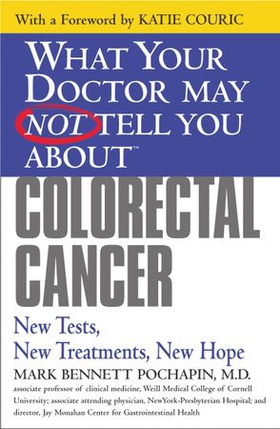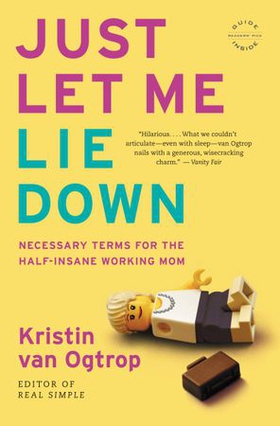
Legg til i ønskeliste
Les gratis utdrag
What Your Doctor May Not Tell You About(TM): Colorectal Cancer ebok
89,-
Part of the bestselling What Your Doctor May Not Tell You series, an informative, detailed guide to colorectal cancer, including treatment and prevention.Over 50,000 men and women die from colorectal cancer each year - a particularly alarming statistic since it is also one of the most preventable and treatable cancers. In fact, it is estimated that over one-third of colorectal cancer deaths could have been avoided. Now, there's hope. This book contains important information on beating colorecta…
Andre har også kjøpt
Undertittel
New Tests, New Treatments, New Hope
Forlag
Grand Central Publishing
Utgitt
10 desember 2016
Sjanger
Språk
English
Format
epub
DRM-beskyttelse
LCP
ISBN
9780759508934
Part of the bestselling What Your Doctor May Not Tell You series, an informative, detailed guide to colorectal cancer, including treatment and prevention.
Over 50,000 men and women die from colorectal cancer each year - a particularly alarming statistic since it is also one of the most preventable and treatable cancers. In fact, it is estimated that over one-third of colorectal cancer deaths could have been avoided. Now, there's hope. This book contains important information on beating colorectal cancer, including the six biggest lifestyle threats, the three nutritional supplements anyone at risk should take, the optimal timeframe for screenings, the pros and cons of new detection tests, and how to effectively treat cancerous and pre-cancerous polyps with both traditional and alternative methods.
Over 50,000 men and women die from colorectal cancer each year - a particularly alarming statistic since it is also one of the most preventable and treatable cancers. In fact, it is estimated that over one-third of colorectal cancer deaths could have been avoided. Now, there's hope. This book contains important information on beating colorectal cancer, including the six biggest lifestyle threats, the three nutritional supplements anyone at risk should take, the optimal timeframe for screenings, the pros and cons of new detection tests, and how to effectively treat cancerous and pre-cancerous polyps with both traditional and alternative methods.














